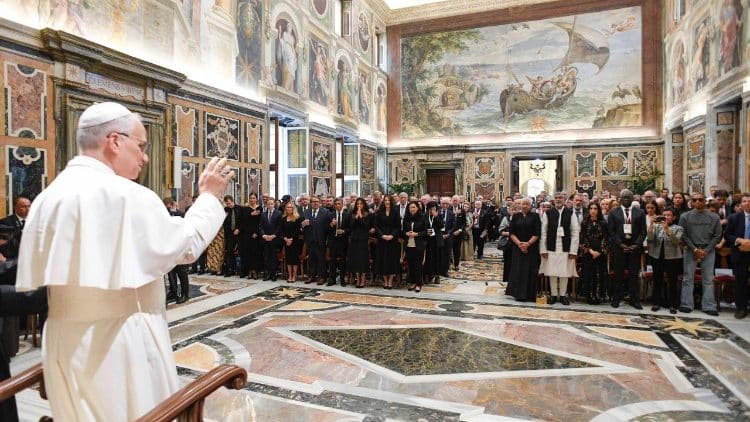Pope Leo XIV addressed the World Meeting on Human Fraternity, held in St. Peter’s Basilica, forcefully inviting those present to ask themselves a decisive question: “Brother, sister, where are you?” In the face of today’s challenges—armed conflict, marginalized migrants, the poor held accountable for their plight, and those suffering from loneliness amid hyperconnectivity—this question resonates as an urgent call to compassion and collective responsibility.
For the Pontiff, it is time to oppose what he calls “the business of war” with an alternative project: an economy founded on care, generosity, and mutual trust. Not an economy “that kills,” but one that expands life, that generates development without exclusion, growth that springs from respect for every person, especially those who suffer.
Leo XIV recalled that violence cannot be accepted as normal, regardless of its age. Citing the biblical story of Cain and Abel, he emphasized that God asks, “Where is your brother?” not only to condemn, but to teach that brotherhood and justice must accompany the entirety of human history.
The Pope also denounced the situation of migrants: rejected, imprisoned, or discriminated against, forced to leave their homes. He spoke of the poor not as mere recipients of aid, but as protagonists with a voice, capable of discernment, contribution, and construction. And he pointed out how loneliness has become a silent evil, even in hyperconnected societies.
In his speech, he proposed concrete actions: strengthening “local and international projects” that promote new forms of solidarity, alliances between knowledge, and solidarity between generations. Fraternity should not be just an ideal, but something that is built day by day through actions that include everyone.
In closing, Leo XIV appealed to culture, to the witness of committed people, and to spirituality as a transformative force. He invited us to keep in our hearts Jesus’ words in the Gospel of John: a new commandment that demands we love one another as He has loved us. This fraternity, he concluded, should inspire not only speeches, but also decisions, relationships, and structures.
